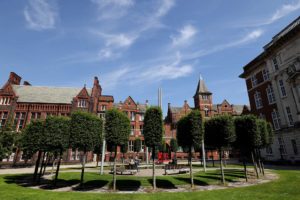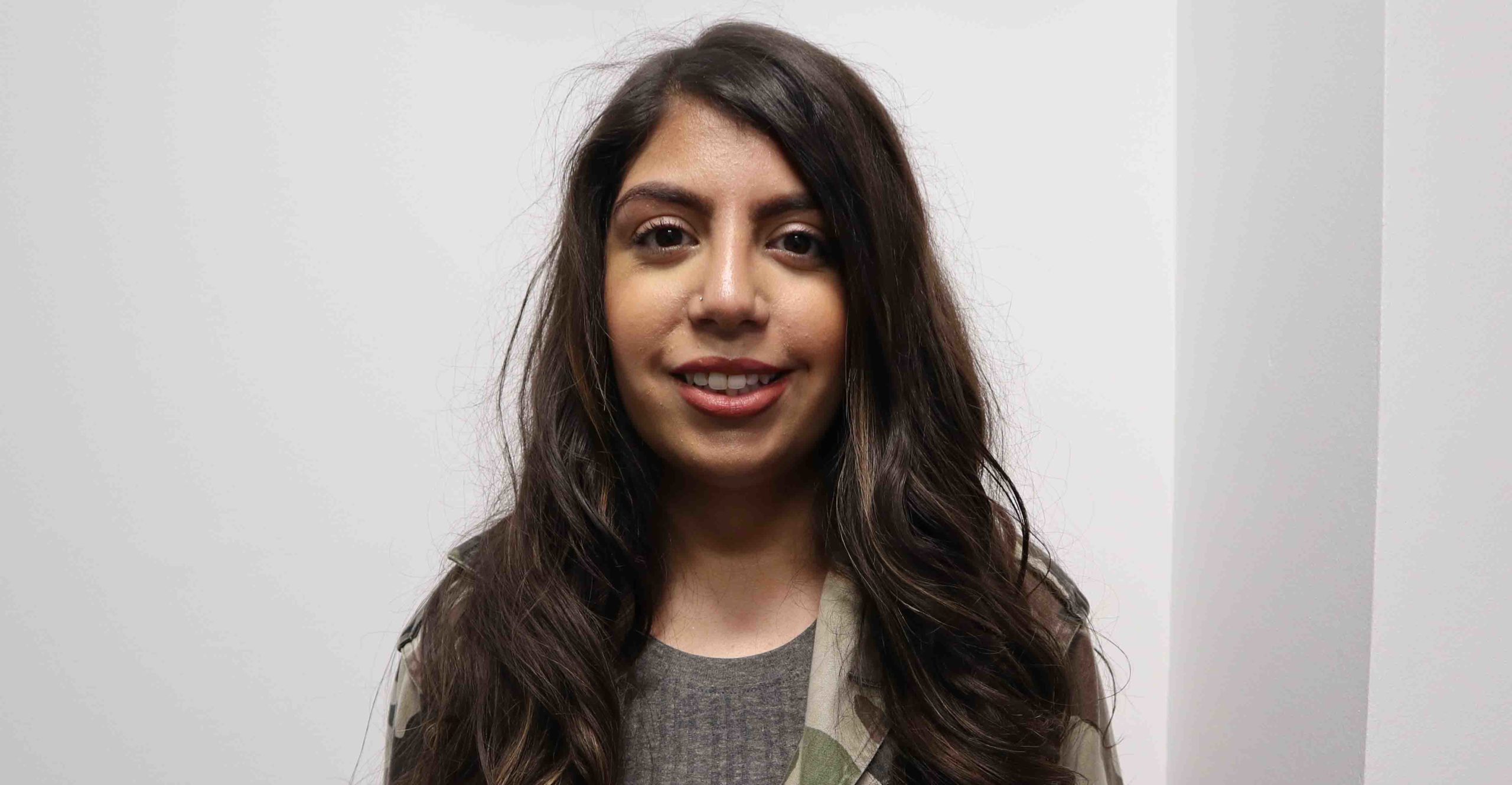Biochemistry
UCAS code C703
- Study mode
- Full-time
- Duration
- 4 years
- Start date and application deadlines
-
- Start date
UCAS code C703
Biochemistry is the study of molecular structures and interactions in living organisms. Biochemists seek to understand living organisms in terms of chemical reactions.
The Master of Biochemistry (MBiol) is a four-year programme, in which students first follow the three-year BSc in Biochemistry and then continue into a fourth year, subject to performance.
In the first three years, you’ll study a broad range of tailored modules including biochemical techniques, biomolecular structure, metabolism, cell biology and cell signalling, alongside the field of bioinformatics, multi-‘omics and molecular systems biology, with the opportunity to specialise and carry out your own research project.
The fourth (Master’s) year aims at developing enhanced research and personal skills for students seeking a high-level career in research (e. g. studying for a PhD or working in industry) or those seeking to enhance their qualification. Students will join a research team to undertake a significant research project. Students can also apply for a six-week summer research internship in the UK or overseas or apply to spend time working in industry or in other enterprises in the final year.

We’re proud to announce we’ve been awarded a Gold rating for educational excellence.
Discover what you'll learn, what you'll study, and how you'll be taught and assessed.
In this first year, you’ll gain an understanding of core concepts of biology and biochemistry, as well as the fundamental principles of immunity, infection, and therapy. You will study how organisms develop and function and learn about biological challenges that affect the global environment. You will also develop bioinformatics and practical skills, and you will discover how to utilise quantitative skills.
Programme details and modules listed are illustrative only and subject to change.
In your second year you’ll expand your range of knowledge, building essential research skills in experimental design and analysis. You will also hone professional skills, preparing you for a career within or outside the broad field of biochemistry. You will study biochemical techniques, cell signalling, biochemical pathways, macromolecular structure and genetics. In addition, you will have optional modules enabling up to follow your interest in pharmacology, health and disease, or physiology. You will choose one optional module.
Programme details and modules listed are illustrative only and subject to change.
Year three will provide an unparalleled opportunity for you to learn at the cutting edge of biochemistry research and be taught by world-leading academics in subjects allied to multi-‘omics, molecular systems biology, protein structure and function and cell biology in health and disease. You will also develop advanced scientific skills and you will have the opportunity to take a physical or virtual placement. Central to this year is the research project where you will plan and execute your own research, analyse and critically evaluate data and communicate your research findings in your chosen specialisation.
Programme details and modules listed are illustrative only and subject to change.
The fourth year of study offers great flexibility – students may spend it entirely on campus at Liverpool, but more commonly they take up opportunities to broaden their experiences, for example a six-week research internship in the UK (in hospitals, industry or research institutes) or abroad (in our partner universities in Thailand or China). Others may elect to spend the entire fourth year on placement, in similar host institutions. Students will take core modules in research methods and statistics or informatics, together with a 60-credit research project. Students may replace the optional internship with other optional modules that cover advanced topics of global importance including bioinformatics and computational biology, cancer clinical trials, immunology, proteomics and metabolomics, and biotechnology related topics:
OPTIONAL MODULES (CHOOSE ONE)
OPTIONAL MODULES (Students choose either the research internship, or two of the remaining modules)
| Compulsory modules | Credits |
|---|---|
| GLOBAL PERSPECTIVES (BIOS776) | 15 |
| RESEARCH PROJECT (LIFE700) | 60 |
Programme details and modules listed are illustrative only and subject to change.
You will experience a range of learning environments during your studies at Liverpool. These will include student-centred activities as well as lectures, tutorials, laboratory practicals, dissection classes, fieldwork, data handling sessions and computer workshops. Some of these activities will be performed individually, such as personal research projects, and others in small tutorial or project groups, in addition to formal lectures and workshops. You will have research staff as well as your own academic adviser for individual tuition on our acclaimed tutorial programme.
As well as factual knowledge and understanding, biologists need practical and organisational skills, and an ability to work both alone and with other people. We record the development of these abilities through continuous assessment during each semester and by final examination.
We have a distinctive approach to education, the Liverpool Curriculum Framework, which focuses on research-connected teaching, active learning, and authentic assessment to ensure our students graduate as digitally fluent and confident global citizens.
The Liverpool Curriculum framework sets out our distinctive approach to education. Our teaching staff support our students to develop academic knowledge, skills, and understanding alongside our graduate attributes:
Our curriculum is characterised by the three Liverpool Hallmarks:
All this is underpinned by our core value of inclusivity and commitment to providing a curriculum that is accessible to all students.
Studying with us means you can tailor your degree to suit you. Here's what is available on this course.
University of Liverpool students can choose from an exciting range of study placements at partner universities worldwide. Choose to spend a year at XJTLU in China or a year or semester at an institution of your choice.
Immerse yourself in Chinese culture on an optional additional year at Xi'an Jiaotong Liverpool University in stunning Suzhou.
Broaden your world by spending an additional year of study at a partner university abroad following your second year of study.
Take a semester of your second year of study at one of our worldwide partner institutions.
Spend a summer abroad on a study placement or research project at one of our worldwide partner institutions.
Every student at The University of Liverpool can study a language as part of, or alongside their degree. You can choose:
This course is also available as a three year BSc (Hons) programme.






From arrival to alumni, we’re with you all the way:

Want to find out more about student life?
Chat with our student ambassadors and ask any questions you have.
As a Biosciences graduate from the University of Liverpool, you will have an excellent set of career options ahead of you.
Typical types of roles/routes our graduates have gone on include:
Recent employers and sectors:
4 in 5 biosciences students find their main activity after graduation meaningful.
(Graduate Outcomes, 2018-19.)
Hear what graduates say about their career progression and life after university.

Victoria is graduated from our BSc Chemistry with a year in industry degree in 2020. She received an offer to work as a Global Operations Graduate Associate at AstraZeneca.

Fizah is a graduate from 2018 who completed a degree in chemistry, nonetheless has started a graduate career in commercial at Johnson Matthey, and has gone on to be appointed Strategy Execution Analyst.
Your tuition fees, funding your studies, and other costs to consider.
Full-time place, per year - £9,535
Year abroad fee - £1,385 (applies to year in China)
Full-time place, per year - £32,000
Year abroad fee - £16,000 (applies to year in China)
Please note, UK full-time fees, year abroad and year in industry fees are for the academic year 2025/26. 2026/27 fees have yet to be confirmed. Please be advised that tuition fees are subject to increase each year, subject to the government’s regulated fee limits.
Tuition fees cover the cost of your teaching and assessment, operating facilities such as libraries, IT equipment, and access to academic and personal support. Learn more about paying for your studies.
We understand that budgeting for your time at university is important, and we want to make sure you understand any course-related costs that are not covered by your tuition fee. This includes the costs associated with placements or internships, and the optional field course in Uganda.
Students should expect to cover the following costs.
Costs associated with placements/internships
Students in Biosciences who have chosen international placements/internships will need to pay for their visa (if applicable), travel, accommodation, and meals.
There may also be costs associated with travel to interviews for placements/internships. These will vary, and some other extra costs may also be incurred. If students are spending a full year in industry, their employers may pay transport costs. School and University bursaries may be available to help with the cost of these opportunities.
Students might choose to pay for additional optional vaccinations in addition to the compulsory ones that the School pays for.
Tropical ecology field course
Students who elect to take the optional tropical ecology field course in Uganda are required to make a financial contribution that covers their own costs (travel, meals, visa, accommodation, and entry to national parks). In 2020-21, the student contribution was £1,500. A limited number of funded places are available.
Students might choose to pay for additional optional vaccinations in addition to the compulsory ones that the School pays for.
We offer a range of scholarships and bursaries that could help pay your tuition and living expenses.
If you’re a UK student joining an undergraduate degree and have a household income below £35,000, you could be eligible for a Liverpool Bursary worth up to £2,000 for each year of undergraduate study.
Apply for an Asylum Seekers Scholarship and you could have your tuition fees paid in full and receive help with study costs. You’ll need to have applied for asylum in the UK, or be the dependant of an asylum seeker, and be joining an eligible undergraduate degree.
If you’ve spent 13 or more weeks in Local Authority care since age 14, you could be eligible for a bursary of £3,000 per year of study. You’ll need to be a UK student joining an eligible undergraduate degree and be aged 28 or above on 1 September in the year you start.
Are you a UK student with a Black African or Caribbean heritage and a household income of £25,000 or less? You could be eligible to apply for a Cowrie Foundation Scholarship worth up to £8,000 for each year of undergraduate study.
If you’re a UK student identified as estranged by Student Finance England (or the equivalent UK funding body), you could be eligible for a bursary of £1,000 for each year of undergraduate study.
Joining a School of Biosciences degree and have a household income of less than £25,000? If you’re a UK student, you could apply to receive £4,500 per year for three years of your undergraduate course.
Do you live in the Liverpool City Region with a household income of £25,000 or less? Did neither of your parents attend University? You could be eligible to apply for a Nolan Scholarship worth £5,000 per year for three years of undergraduate study.
Are you a UK student with a household income of £25,000 or less? If you’ve participated in an eligible outreach programme, you could be eligible to apply for a Rigby Enterprise Award worth £5,000 per year for three years of your undergraduate degree.
Are you a UK student with a household income of £25,000 or less? Did neither of your parents attend University? You could be eligible to apply for a ROLABOTIC Scholarship worth £4,500 for each year of your undergraduate degree.
Apply to receive tailored training support to enhance your sporting performance. Our athlete support package includes a range of benefits, from bespoke strength and conditioning training to physiotherapy sessions and one-to-one nutritional advice.
Joining a degree in the School of Electrical Engineering, Electronics and Computer Science? If you’re a UK student with household income below £25,000, you could be eligible to apply for £5,000 a year for three years of study. Two awards will be available per academic year.
If you’re a young adult and a registered carer in the UK, you might be eligible for a £1,000 bursary for each year of study. You’ll need to be aged 18-25 on 1 September in the year you start your undergraduate degree.
Have a question about this course or studying with us? Our dedicated enquiries team can help.
Last updated 17 October 2025 / / Programme terms and conditions